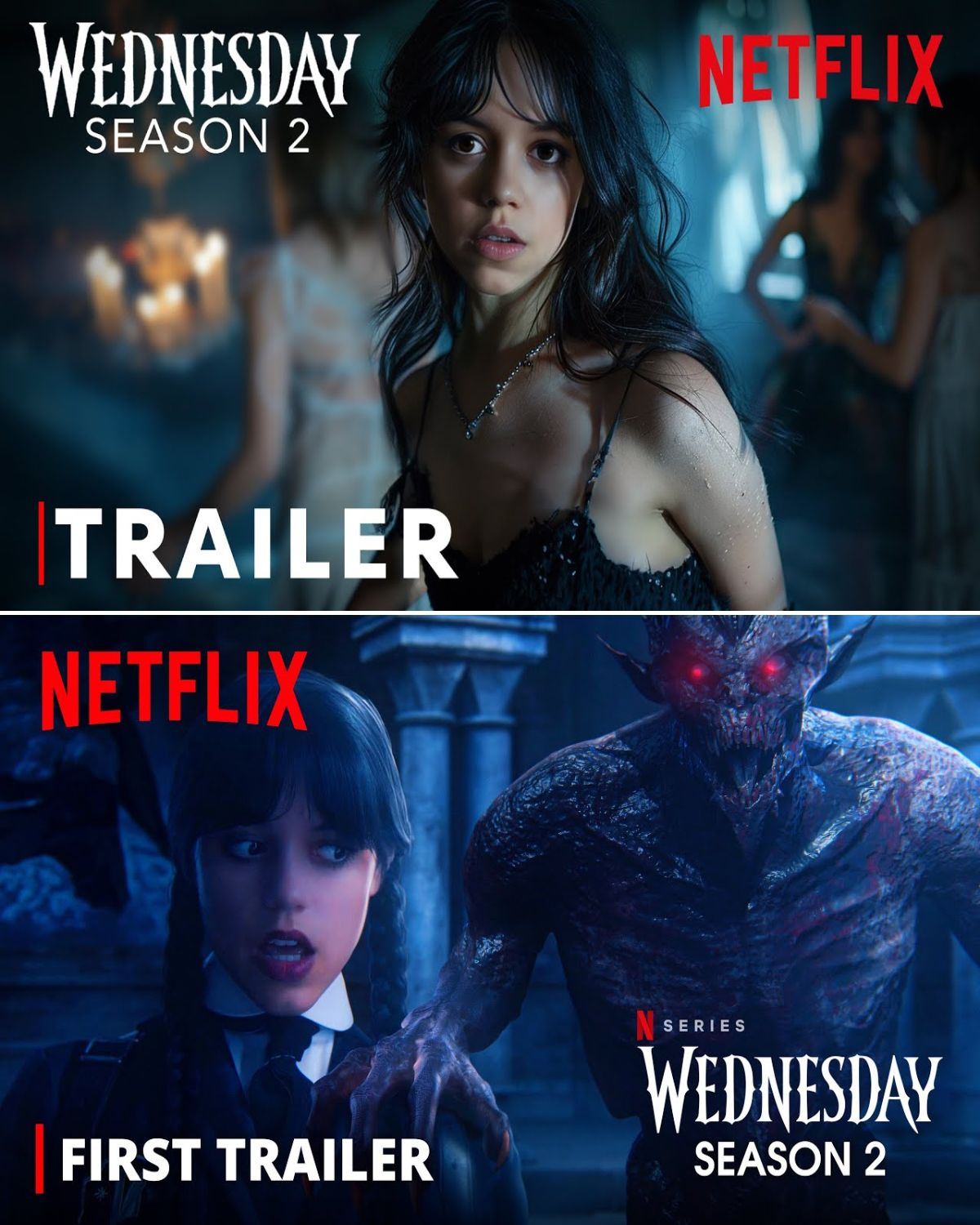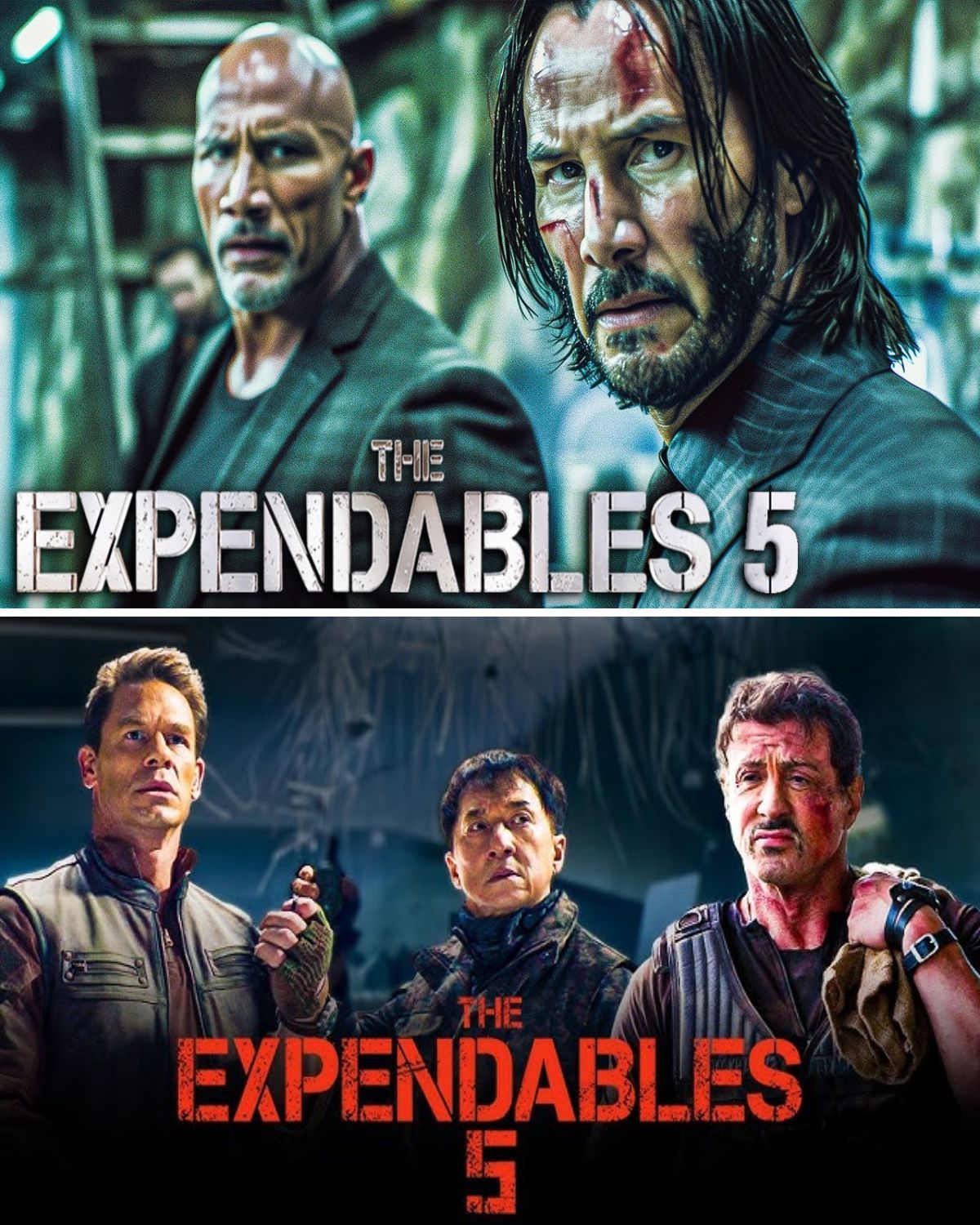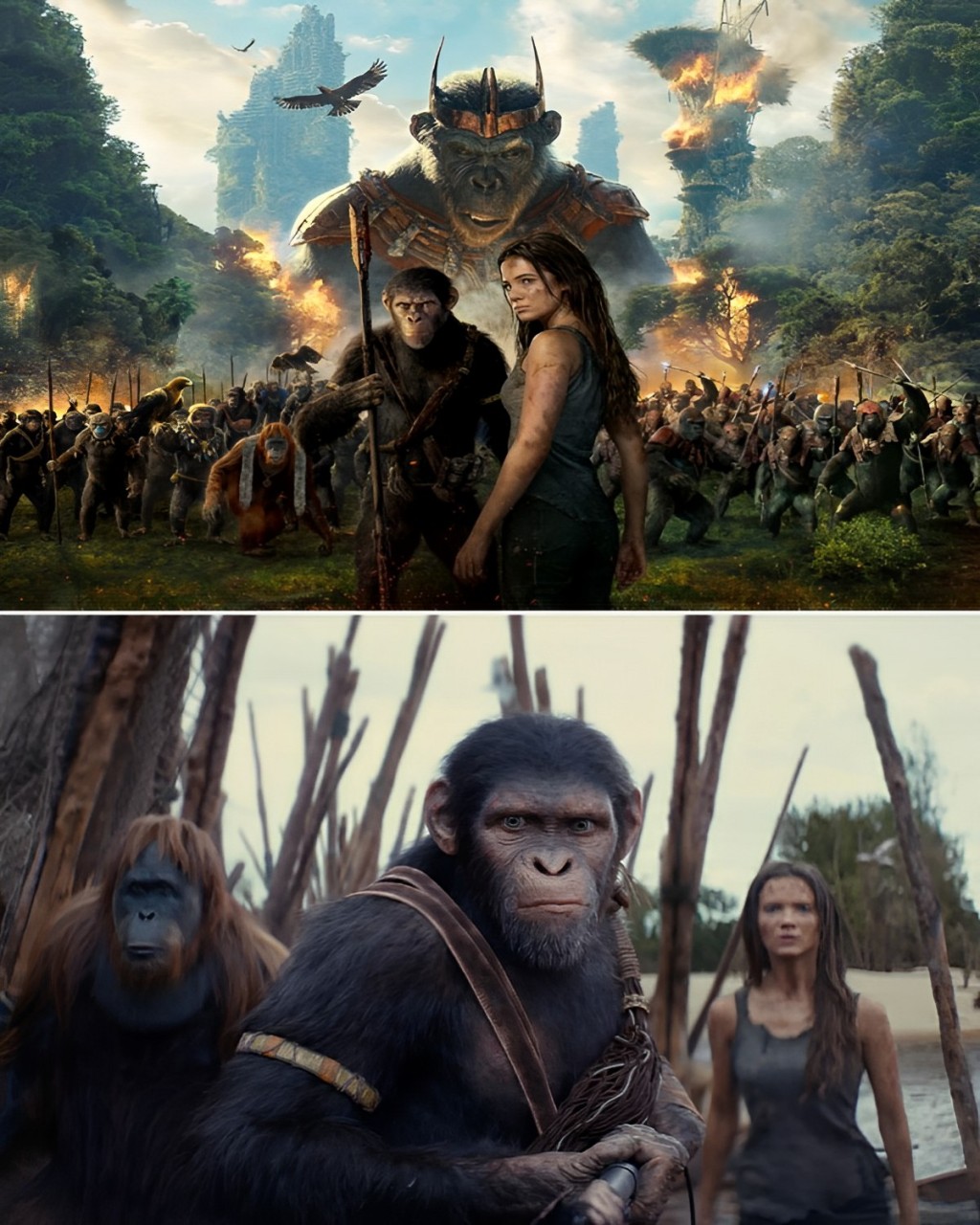Thanos is only now attacking in Avengers: Infinity War after lurking in the shadows for years. Looking back over Phase 3 may reveal why he waited.
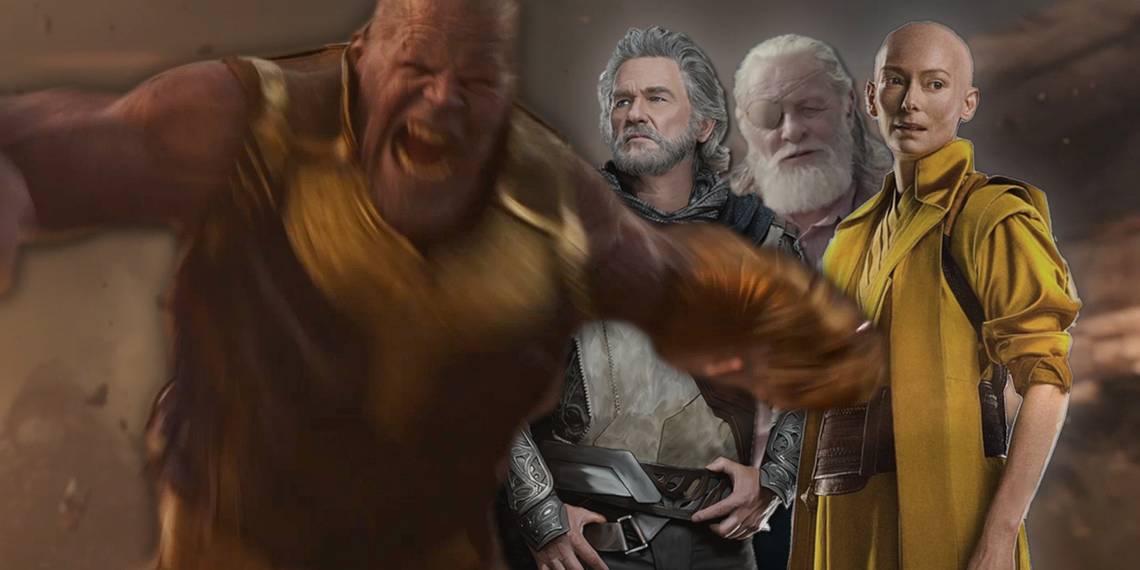
In Avengers: Infinity War, Thanos will finally attack. And when we say “finally“, we mean it; the Mad Titan has been a lingering presence for over half of the MCU yet has only a handful of appearances and minimal plot impact.Thanos was first introduced in The Avengers, revealed in the mid-credits scene to have been behind Loki’s assault on Earth, a bargaining chip so he could acquire the Space Stone. He returned in Guardians of the Galaxy, this time manipulating Kree warlord Ronan the Accuser to get the Power Stone in exchange for destroying Xandar. He eventually ditched underlings in Avengers: Age of Ultron‘s mid-credits scene, vowing to “do it” himself, yet has been completely absent in the years since, only popping up again during Thor: Ragnarok‘s stinger to (presumably) finally get the Tesseract off Loki.Read More: Infinity War Theory: Trailers Show How [SPOILER] DiesWhile the exact passage of time in the MCU is unclear (long assumed to be in real time, movies have been completely out of order in Phase 3), it’s been six years in the real world since the grinning purple giant was first seen and he’s made next to no progress: he spent most of Phases 1 & 2 lurking in the shadows using puppets, and despite since vowing to start the Infinity quest hasn’t made any headway. In fact, if you avoided any post-credits teasings, Thanos has technically only been seen once in a movie that’s almost four years old. But is there a reason for this?This Page: What Does Thanos Actually Want?
What Actually Is Thanos’ Plan?
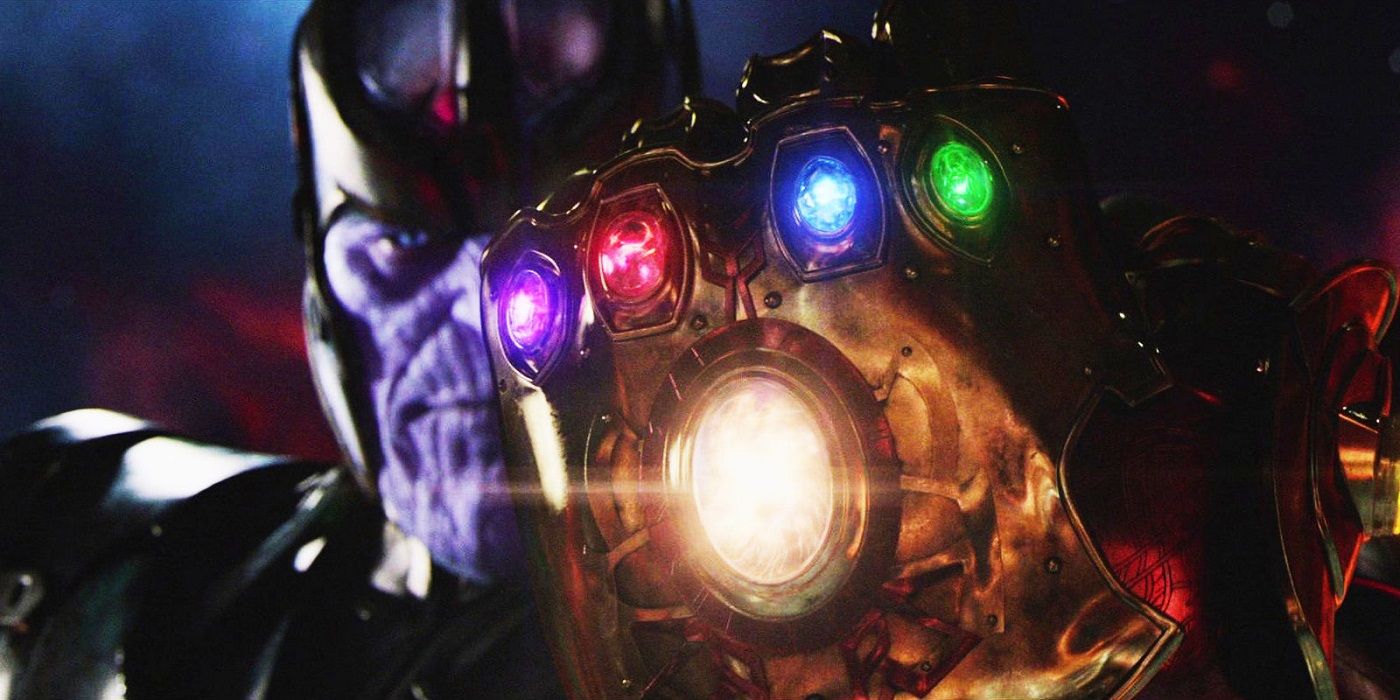
As revealed in the latest Infinity War trailer, Thanos’ primary goal is to bring “balance” to the universe by killing half of those alive. He plans to do this by collecting all the Infinity Stones, giving him God-like power, and – just as in the comics – snapping his fingers to kill billions. We’ll learn much more about Thanos’ backstory in the movie itself, but that’s the crux of what’s going on: the Stones are a method for destruction rather than the pure goal.
That’s still a bold plan, and one that explains why he first had minions do it: there’s high risk in getting a single Infinity Stone, let alone the full six, and to make a stand draws direct attention to himself. It’s easier to have Loki and Ronan – both of whom had their own, personal reasons to be getting their respective Stones – do the legwork then collect the reward afterward. Keeping in the shadows definitely worked: the only people aware of Thanos at all are the Guardians of the Galaxy thanks to Gamora’s knowledge, and even then they don’t seem to know what exactly the Mad Titan’s up to; Thor went on a two year mission to investigate why the Stones had become prominent and didn’t come close to uncovering the truth
It’s still conspicuous that once Thanos decides to actually make a move, he does nothing. It’s possible that he has been carefully planning out his approach since Age of Ultron – he definitely knows that Earth, where the majority of the Infinity Stones are, is a task given the presence of the Avengers – but that makes his decision to attack now still rather random. Considering the positioning of Earth’s Mightiest Heroes, it feels strangely convenient. Although those adventures may be the key.
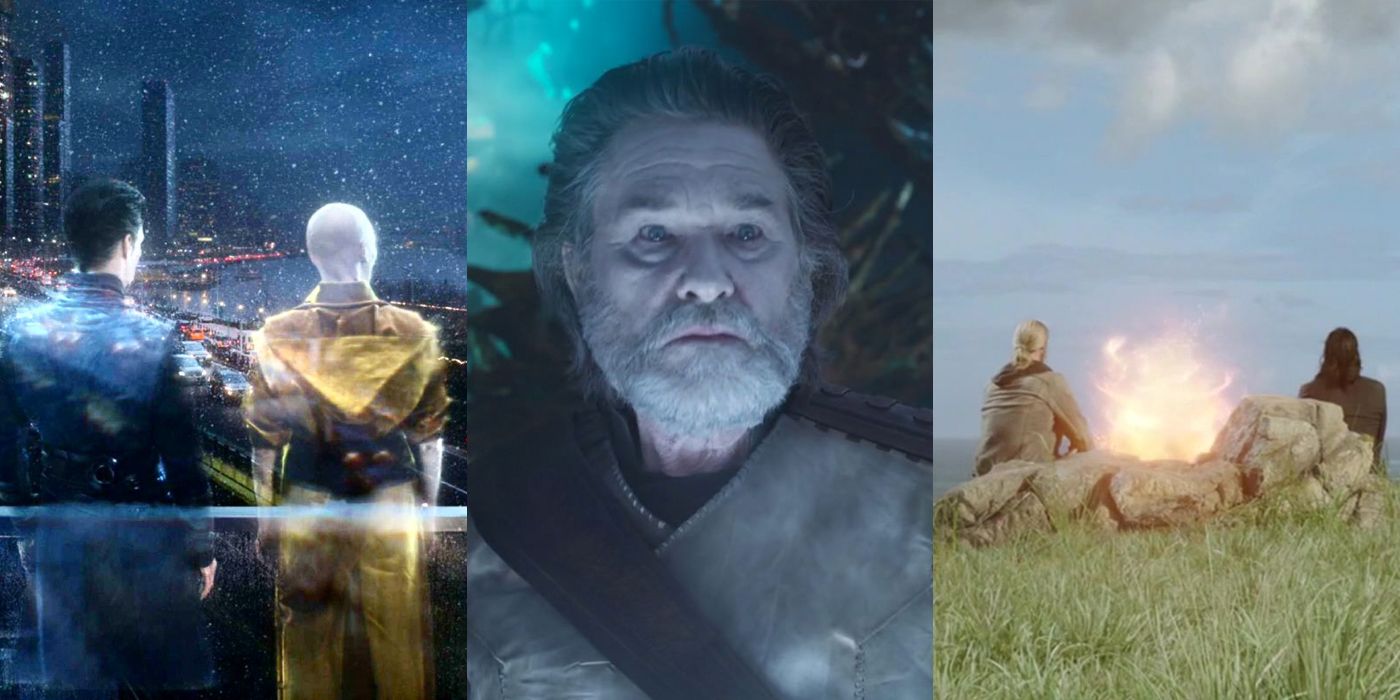
While the “bigger universe” Nick Fury said Tony Stark was becoming a part of in Iron Man‘s post-credits scene took a while to emerge, it’s become clear there are major cosmic forces that dwarf the Avengers even now. The timeline of the MCU goes all the way back to the start of existence, and across the eighteen movies we’ve met numerous legendary figures of immense power. However, many of the big guns have begun to drop.
First, in Doctor Strange we saw the death of the Ancient One. For millennia, she’d ruled the Sorcerers and overseen all realities, yet in (what is presumed to be) 2016 she was killed by former student Kaecillius, leaving behind a new, much-younger Sorcerer Supreme, one who wasn’t calling on the powers of the Dark Dimension. Dormammu was also out of the picture thanks to Stephen Strange’s efforts (incidentally using the Time Stone).
Technically earlier in continuity but in terms of release after came Guardians of the Galaxy Vol. 2, which introduced Ego as the last Celestial. The range and powers each MCU Celestial had is a mystery, but between Ego and Knowhere’s, we can get a strong idea; even if they couldn’t contain the power of a single Infinity Stone, they weren’t to be trifled with. And now they’re gone. Of course, it’s possible Ego was being self-aggrandizing in an attempt to big him up to son, Star-Lord, but it seems likely the destruction of the living planet ended this line; while Peter Quill did develop Celestial powers, it’s made clear he’ll lose them after his father’s death.
And, finally, we have Odin and Asgard. Things had already been precarious for the past few years thanks to Loki’s fake-Odin rule, but in Thor: Ragnarok it all came literally crashing down; Odin ended his life and Asgard was destroyed shortly after by his sons releasing Surtur to stop Hela. The All-Father is dead, replaced by the only recently-proven Thor, and the realm they protected is gone.
In short, over the past two years, Marvel has been carefully removing all of its ancient, all-powerful beings from the equation, often passing down the mantle to unstable descendants. If you add in Captain America: Civil War dividing the Avengers and Black Panther opening Wakanda up to the world under T’Challa’s new rule, pretty much all of Phase 3 was pretty much tearing down the past, leaving massive wounds a Mad Titan could exploit; Thanos is attacking now because he finally can.
Thanos Will Take On The Descendants
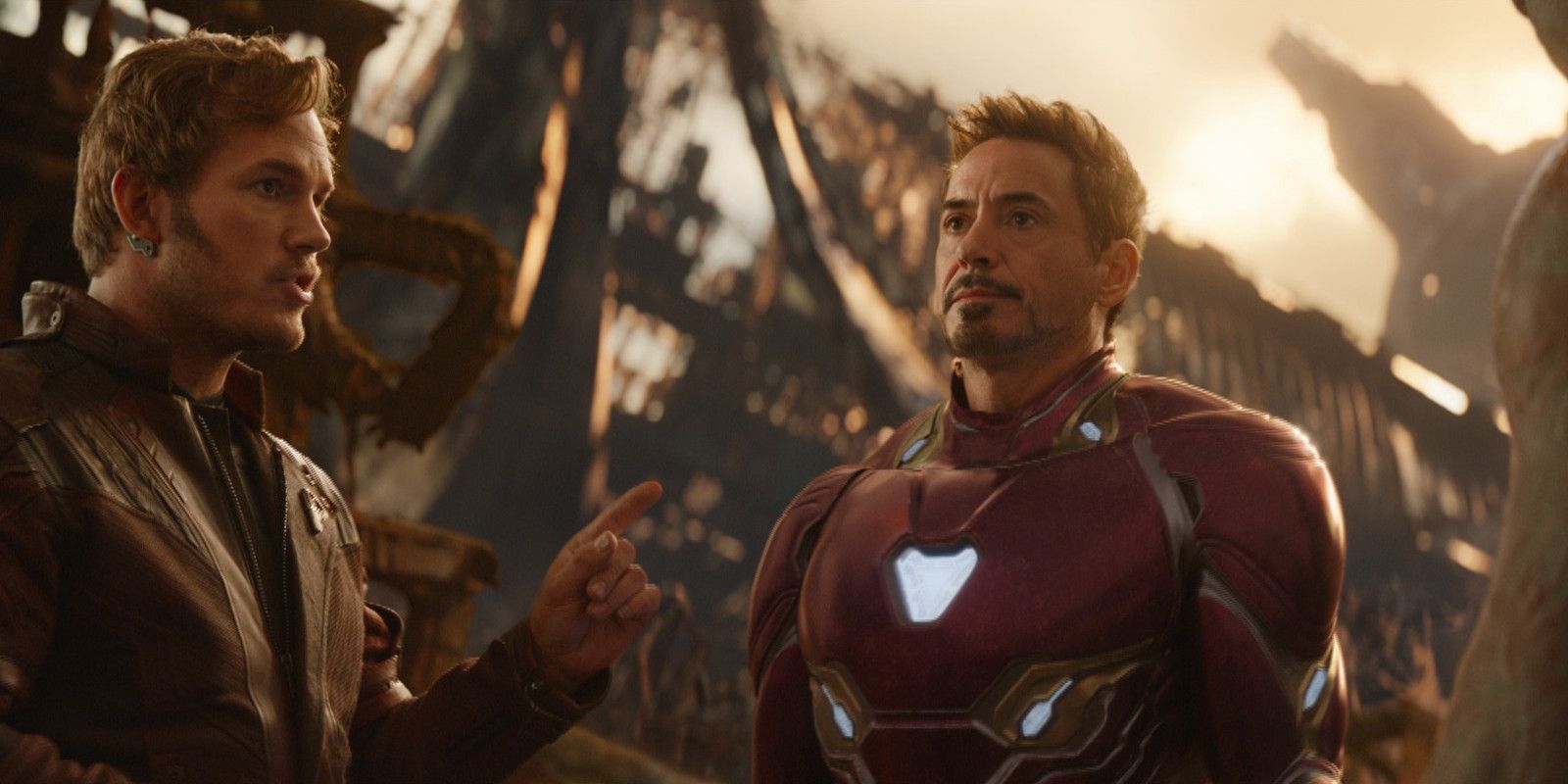
Now, whether this was intentional on Marvel’s part is open to debate, but what isn’t is that it’s happened. Whether Infinity War namechecks these priors events as motivating Thanos or not, it’s a pretty cohesive theory – not least because it deepens the story at hand.
This doesn’t just explain why Thanos is attacking now, it makes Infinity War look like a much more thematically-purposed fight. The opposition is almost exclusively the descendants, either those taking on mantles that are new to them or, in the case of Iron Man and Captain America, moving on from their past. Children, students, new figures; the Avengers 3 lineup is all linked through the lost mentor trope. Infinity War makes sense to take place now, and its villain’s defeat feels all the more necessary.
If Thanos has indeed waited for the great powers in the universe to pass on before attacked, he’s implicitly underestimating their successors – and in doingsetting himself up for defeat. In the comics, Thanos’ defeat came at the hands of Nebula, and the latest Avengers: Infinity War trailer pointed towards his past with adopted daughter Gamora would be likewise essential, but it’s likely going to be a full team effort.
As the Other said to him in The Avengers, “to challenge them is to court death“. He should have listened.
